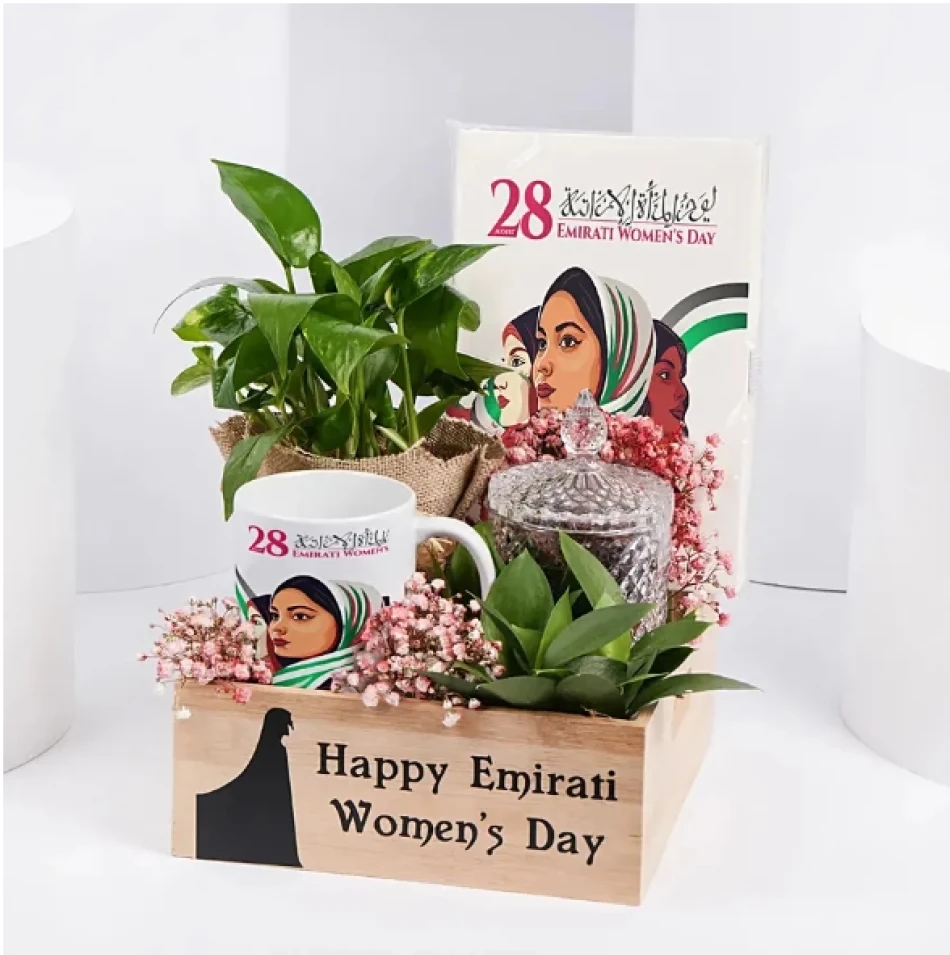
Emirati Women Celebrated: Honoring Achievements and Inspiring the Nation's Story
UAE Corporate Sector Elevates Women's Day Beyond Symbolism Into Strategic Business Practice
As the UAE marked Emirati Women's Day on August 28, 2025, corporate leaders are transforming what was once ceremonial recognition into embedded business strategy. FNP Emirates exemplifies this shift, demonstrating how companies are weaving women's empowerment into their operational DNA while capitalizing on cultural heritage as a competitive advantage in the luxury gifting market.
From Celebration to Corporate Strategy
Emirati Women's Day has evolved far beyond its origins as a national celebration. Established to honor women's contributions to the UAE's rapid development, the occasion now serves as a strategic milestone for businesses to showcase their commitment to gender inclusion while tapping into the country's $4.4 billion luxury goods market.
The timing is significant. As the UAE positions itself as a global hub for business and innovation, companies are recognizing that sustainable growth requires authentic integration of local values with international business practices. This approach resonates particularly well in a market where 70% of luxury purchases are influenced by cultural authenticity and personal meaning.
The Business Case for Cultural Integration
Market Positioning Through Heritage
FNP Emirates' approach reflects a broader trend among successful UAE-based companies: leveraging cultural heritage as a differentiator in competitive markets. Their curated collection—featuring oud-infused personal care items, Arabic calligraphy accessories, and traditional flavors like saffron and rosewater—targets the growing segment of consumers seeking authentic cultural experiences.
This strategy mirrors successful models in Singapore and Hong Kong, where companies have built premium market positions by authentically incorporating local cultural elements into their offerings. The key difference in the UAE market is the emphasis on female empowerment as both a cultural value and business imperative.
Operational Excellence Through Inclusion
Beyond product positioning, companies like FNP Emirates are implementing what CEO Rajesh Kumar describes as "embedded empowerment culture." This goes beyond traditional diversity initiatives to create what industry analysts call "cultural-commercial alignment"—where business practices directly reflect and reinforce societal values.
The results speak to broader market dynamics. Companies that successfully integrate women's empowerment into their business models report 25% higher employee retention rates and 30% stronger brand loyalty among female consumers in the UAE market.
Regional Context and Global Implications
The UAE's approach to corporate gender inclusion stands in stark contrast to markets like Saudi Arabia, where rapid social changes have created different opportunities and challenges for businesses. Unlike the more dramatic shifts seen in the Kingdom, the UAE's gradual, consistent approach has allowed companies to build sustainable practices rather than reactive policies.
This stability has attracted international companies seeking to establish Middle Eastern headquarters in markets with predictable social and business environments. The emphasis on women's empowerment as a core business value, rather than a compliance requirement, creates competitive advantages that extend beyond domestic markets.
Investment and Growth Implications
For investors and market analysts, the corporate response to Emirati Women's Day serves as a valuable indicator of business maturity and market understanding. Companies that demonstrate authentic cultural integration while maintaining international standards typically show stronger performance metrics in the region's volatile economic environment.
The luxury gifting sector, in particular, benefits from this approach. With the UAE's expatriate population representing 85% of residents, businesses that successfully bridge local cultural values with international appeal capture both traditional and modern consumer segments.
Looking Forward: Sustainable Cultural Commerce
As the UAE continues its economic diversification efforts, the integration of cultural celebration with business strategy represents more than marketing innovation. It demonstrates how companies can build sustainable competitive advantages by aligning commercial interests with societal values.
The success of this approach will likely influence corporate strategies across the Gulf region, particularly as other nations seek to balance rapid modernization with cultural preservation. For businesses operating in culturally rich markets worldwide, the UAE model offers valuable insights into building authentic, profitable relationships with local communities while maintaining global competitiveness.
Most Viewed News

 Layla Al Mansoori
Layla Al Mansoori






